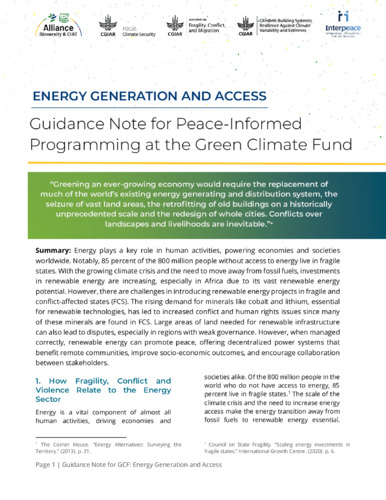Guidance note for peace-informed programming at the Green Climate Fund: Energy generation and access.
Energy plays a key role in human activities, driving economies and societies worldwide. Notably, 85 percent of the 800 million people without energy access live in fragile states. With the growing climate crisis and the need to move away from fossil fuels, investments in renewable energy are increasing, especially in Africa due to its vast renewable energy potential. However, there are challenges in introducing renewable energy projects in Fragile and Conflict-affected States (FCS). The rising demand for minerals like cobalt and lithium, essential for renewable technologies, has led to increased conflict and human rights issues since many of these minerals are found in FCS. Large areas of land needed for renewable infrastructure can also lead to disputes, especially in regions with weak governance. But, when managed correctly, renewable energy can promote peace, offering decentralized power systems that benefit remote communities, improve socio-economic outcomes, and encourage collaboration between various stakeholders.

